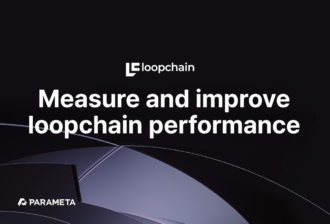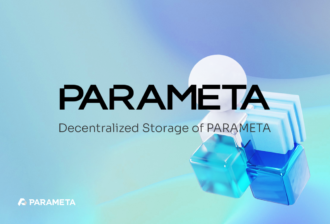BLOG
MyData and PDS
2023.06.20
Greetings from the PARAMETA Team,
As the utilization of personal data continues to increase and its economic value grows with the advancement of digital technology, MyData is gaining attention for strengthening self-sovereignty over personal data and creating a data industry ecosystem.
In this article, we would like to talk about MyData and PDS (Personal Data Storage), which serves as a personal hub for MyData.
What is MyData?
MyData is a process in which individuals, as data subjects, actively manage and control their own information and actively utilize it in their personal lives, including credit management, asset management, and even health management – Financial Services Commission |
MyData is a system that changes the information sovereignty of customer data, such as financial asset information and credit information, from financial institutions to individuals. In other words, by returning ownership of personal information to individuals, MyData is an activity that allows them to directly control how their data is managed and utilized, and to create new businesses by broadly obtaining customer data that was previously scattered or monopolized by certain companies based on customer choice.
What is the Progress of the MyData Business in Korea?
In Korea, the government is actively introducing my data, overhauling related systems such as the Data 3 Act, and promoting the full opening of financial payment infrastructure and financial services such as my data and my payment. Through this, it is expected that it will be possible to provide personalized services, such as receiving health information for oneself by integrating non-financial health information, as well as receiving one’s own optimized financial services by gathering financial services scattered across multiple financial institutions.
Currently, the government-led MyData project is being conducted in two ways: MyData 1.0, in which data is collected by designated operators, and MyData 2.0, in which a separate personal data repository such as PDS is built to enter data and users can access the PDS and selectively provide data directly.
MyData 1.0
MyData 1.0 is a method of selecting and licensing MyData operators, which allows MyData operators to collect personal information of customers scattered across multiple financial institutions with only the user’s consent. Accordingly, major domestic financial companies and big tech companies have applied for licenses, and 59 institutions have been issued licenses and are currently conducting business. (Status of Personal Credit Information Management Business License >>)
The MyData business through MyData operators is in the form of MyData 1.0, which has the limitation that it is difficult for users to control because the data-holding organizations are actually the same as before, and there are concerns that personal information that was scattered across multiple organizations may be concentrated in MyData operators, creating another Big Brother.
MyData 2.0
MyData 2.0 is a method that separates PDS (Personal Data Storage), enters data into the storage, and opens it up to service providers by allowing users to access the PDS and select the information they want to provide. The advantage of this approach is that the data is not centralized to a specific organization, so there is no associated risk, and the service provider is less likely to have to deal with security issues arising from storing personal data. The aforementioned PDS is an individual’s own secure repository where sensitive personal data is encrypted and stored separately so that only they can decrypt it, and can grant access to others as needed. It is a key technology in MyData 2.0 because it can enhance security by ensuring that an individual’s data cannot be viewed and that only those whom the user authorizes can access it for an authorized period of time.
In particular, the role of blockchain technology is very important to ensure the reliability and integrity of data stored in PDS, so PARAMETA has developed PDS based on its own original technology and is providing it in various forms.
PARAMETA’s Blockchain Framework ‘Parameta Framework)’ (Learn more >>)

Gyeongsangbuk-do Digital Identity Authentication MyData Platform (Learn More >>)

Signed a Business Agreement with Gitple, a First-generation Data Provider, to Promote Blockchain-based Data Business (Learnmore >>)

It is expected that MyData 2.0 will be able to expand and expand its business in the form of MyData utilizing PDS in a way that is faithful to the true meaning of MyData described earlier, which is to return ownership of personal information to individuals.
PARAMETA has been focusing on user-centered data distribution, such as Korea’s first DID service for the financial sector, ‘zzeung’, and the Jeju-type tourism quarantine system, ‘Jeju Safety Code’. We will continue to strive to return data sovereignty to users and create a more trustworthy society through various technologies such as DID and PDS.



